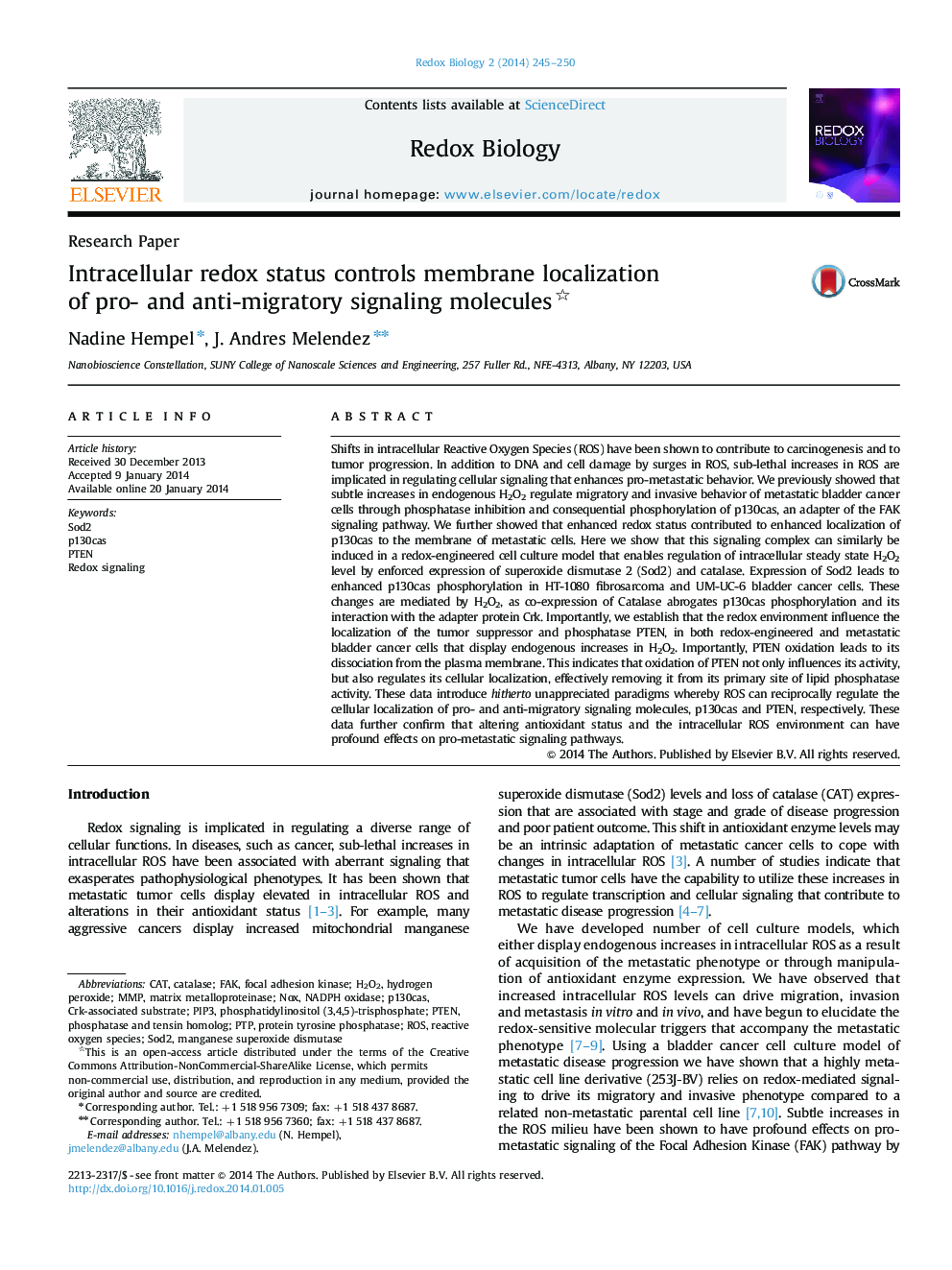| کد مقاله | کد نشریه | سال انتشار | مقاله انگلیسی | نسخه تمام متن |
|---|---|---|---|---|
| 1923020 | 1535848 | 2014 | 6 صفحه PDF | دانلود رایگان |
• Sod2-mediated increases in steady state H2O2 enhance phosphorylation of the focal adhesion adapter protein p130cas, which regulates migration.
• Sod2-dependent changes in steady state H2O2 increase membrane recruitment of p130cas.
• H2O2 controls the oxidation-dependent recruitment of PTEN from the plasma membrane to the cytosol.
• Intracellular shifts in ROS can reciprocally regulate the cellular localization of pro- and anti-migratory signaling molecules, p130cas and PTEN respectively.
Shifts in intracellular Reactive Oxygen Species (ROS) have been shown to contribute to carcinogenesis and to tumor progression. In addition to DNA and cell damage by surges in ROS, sub-lethal increases in ROS are implicated in regulating cellular signaling that enhances pro-metastatic behavior. We previously showed that subtle increases in endogenous H2O2 regulate migratory and invasive behavior of metastatic bladder cancer cells through phosphatase inhibition and consequential phosphorylation of p130cas, an adapter of the FAK signaling pathway. We further showed that enhanced redox status contributed to enhanced localization of p130cas to the membrane of metastatic cells. Here we show that this signaling complex can similarly be induced in a redox-engineered cell culture model that enables regulation of intracellular steady state H2O2 level by enforced expression of superoxide dismutase 2 (Sod2) and catalase. Expression of Sod2 leads to enhanced p130cas phosphorylation in HT-1080 fibrosarcoma and UM-UC-6 bladder cancer cells. These changes are mediated by H2O2, as co-expression of Catalase abrogates p130cas phosphorylation and its interaction with the adapter protein Crk. Importantly, we establish that the redox environment influence the localization of the tumor suppressor and phosphatase PTEN, in both redox-engineered and metastatic bladder cancer cells that display endogenous increases in H2O2. Importantly, PTEN oxidation leads to its dissociation from the plasma membrane. This indicates that oxidation of PTEN not only influences its activity, but also regulates its cellular localization, effectively removing it from its primary site of lipid phosphatase activity. These data introduce hitherto unappreciated paradigms whereby ROS can reciprocally regulate the cellular localization of pro- and anti-migratory signaling molecules, p130cas and PTEN, respectively. These data further confirm that altering antioxidant status and the intracellular ROS environment can have profound effects on pro-metastatic signaling pathways.
Figure optionsDownload as PowerPoint slide
Journal: Redox Biology - Volume 2, 2014, Pages 245–250
